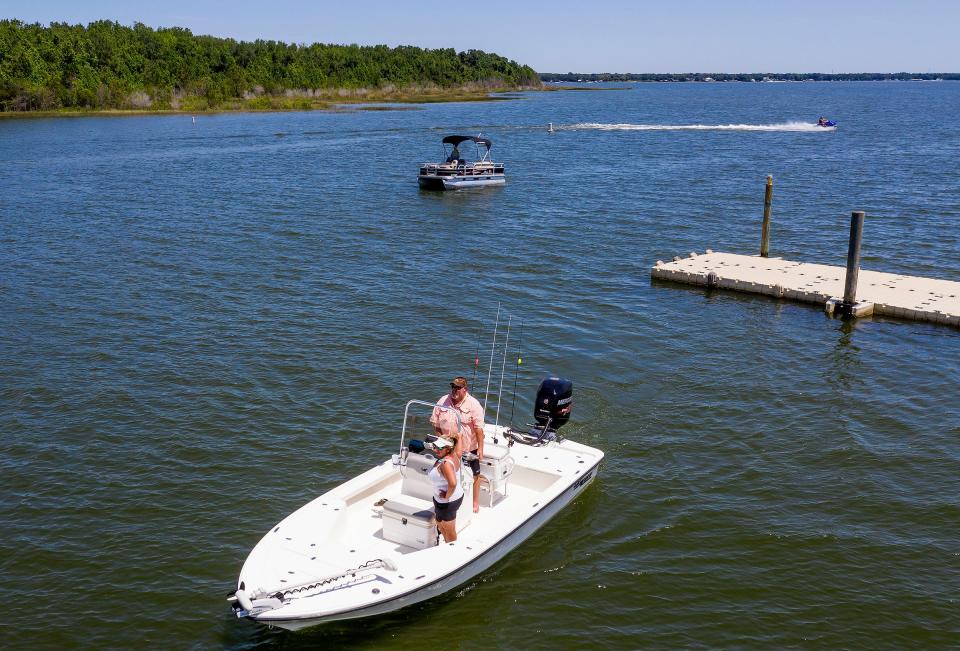Lake Weir health alert: Blue-green algal toxins detected during state testing
LAKE WEIR — The Florida Department of Health in Marion County on Monday issued a health alert for Lake Weir in Ocklawaha due to the presence of harmful blue-green algal toxins found in a June 7 sample.
The sample was taken from the center of the lake by the Florida Department of Environmental Protection, according to a press release from the DOH in Marion.
According to FloridaHealth.gov.: “In water bodies with blue-green algae, if people or animals splash or if boats create wakes, the cyanotoxins in the algae can release into the air. The toxins mix with water droplets and spray — that’s how people and animals can inhale the toxin. These toxins can’t pass through your skin easily, so swallowing large amounts of contaminated water is what causes illness.”
Fishing: Area fishing report for lakes and rivers in and around Marion County
New program: Water conservation program in OTOW, Stone Creek and Calesa will lower bills, water use
'This means a lot': Ocala Salvation Army reopens dining hall after two-year COVID closure
Exposure can cause “rashes, stomach cramps, nausea, diarrhea and vomiting. People who are very sensitive to smells can have respiratory irritation. Sometimes, high exposures of toxin can affect the liver and nervous system,” according to the website.
“If you come into contact with blue-green algae, get out of the area and wash off with soap and water. See your doctor if you think blue-green algae has made you sick,” the website indicates.

The DOH-Marion press release detailed these precautions:
"Do not drink, swim, wade, use personal watercraft, water ski, or boat in waters where there is a visible algae bloom. Do not get water in your eyes, nose, or mouth."
"Wash your skin and clothing with soap and water if you have contact with algae or discolored or smelly water."
"Keep pets away from the area. Waters where there are algae blooms are not safe for animals. Pets and livestock should have a different source of water when algae blooms are present."
"Do not cook or clean dishes with water contaminated by algae blooms. Boiling the water will not eliminate the toxins."
"Eating fillets from healthy fish caught in freshwater lakes experiencing blooms is safe. Rinse fish fillets with tap or bottled water, throw out the guts and cook fish well."
"Do not eat shellfish in waters with algae blooms."
The press release described blue-green algae blooms as bacteria that may form floating mats, which “emit unpleasant odors."
Sunny days, warm water temperature and still water conditions are factors in formation of blooms, and "many types of blue green algae can produce toxins," the press release indicated.
For current information on Florida’s water quality status and public health notices on algal bloom and beach conditions, visit ProtectingFloridaToegther.gov.
Blooms can be reported to the DEP, which collects and analyzes samples. Call 1-855-305-3903 or visit http://www.surveygizmo.com/s3/3444948/Algal-Bloom-Reporting-Form.
For additional health questions about blue-green algae blooms, contact DOH-Marion at (352) 629-0137 or Info.Marion@FlHealth,gov.
This article originally appeared on Ocala Star-Banner: Lake Weir in Marion County, Florida subject of a health alert

